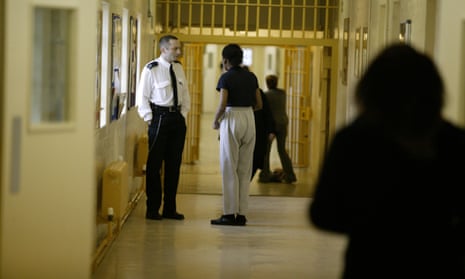A coalition of women’s rights organisations has called on the UK government to abolish a law that gives courts the power to send people to prison for their own protection, as part of a 10-point plan to tackle inequalities in the criminal justice system.
On the fifth anniversary of the Lammy Review, leading women’s rights groups have derided the “lack of progress” in tackling persistent inequalities experienced by black, Asian, minority ethnic and migrant women in the criminal justice system.
The coalition warned that these women faced the “double disadvantage” of gender inequality and racism when they encountered the criminal justice system, which prevented them getting the support they needed and left them at risk of reoffending.
The coalition of organisations, including Hibiscus, Muslim Women in Prison, the Zahid Mubarek Trust, Agenda, Criminal Justice Alliance and Women in Prison, presented the government with the action plan.
As well as abolishing the law that gives courts the power to send people to prison for their own protection, the coalition demands practical changes to training, recruitment and external scrutiny. It also calls on the Ministry of Justice (MoJ) to analyse and publish data on racial disparities in women’s contact with the criminal justice system.
In 2018, the government published the Female Offender Strategy, which made a public commitment to tackle racial disparity, but the coalition argues it does not go far enough to meet the needs of BAME and migrant women.
Amina, 27, who served a prison sentence, said: “My faith is really important to me and it’s the one thing that got me through my prison sentence but from what I saw the officers had no understanding of what being a Muslim means.
“They only know the negative picture the media paints. For the first three months of my sentence, I had to pray on a towel because nobody gave me a prayer mat even though officers saw me pray on the towel. Another one of the girls had to fight my corner and get me one.”
Ivory, 35, a woman supported by Hibiscus, an organisation working with BAME and migrant women at the intersection of the immigration and criminal justice, said: “In prison there is a lot of discrimination and racism against black and Asian women because of how we look and the colour of our skin. The way staff address white people is different, and I suffered bullying because of this.
“This is an important issue that needs to be urgently looked into and changed.”
Marchu Girma, the chief executive of Hibiscus, said: “Currently there are unacceptable levels of inequalities in the criminal justice system, that result in many black, Asian, minoritised and migrant women suffering. I am certain these inequalities are not mountains that cannot be moved.”
Indy Cross, the chief executive of Agenda, an alliance for women and girls at risk, said: “It’s a national shame that the criminal justice system consistently fails so many black, Asian, minoritised, and migrant women. The double disadvantage of structural racism and gender inequality in the criminal justice system must be tackled.”
A Ministry of Justice spokesperson said: “We are working across Government to tackle the deep-rooted causes of racial disparities in the justice system, including by improving education and healthcare so that opportunity is spread more equally.
“The number of women entering the criminal justice system has fallen 30 per cent since we launched our Female Offenders Strategy and we are investing millions into community services like women’s centres, drug rehabilitation and accommodation so even fewer women end up in prison.”
